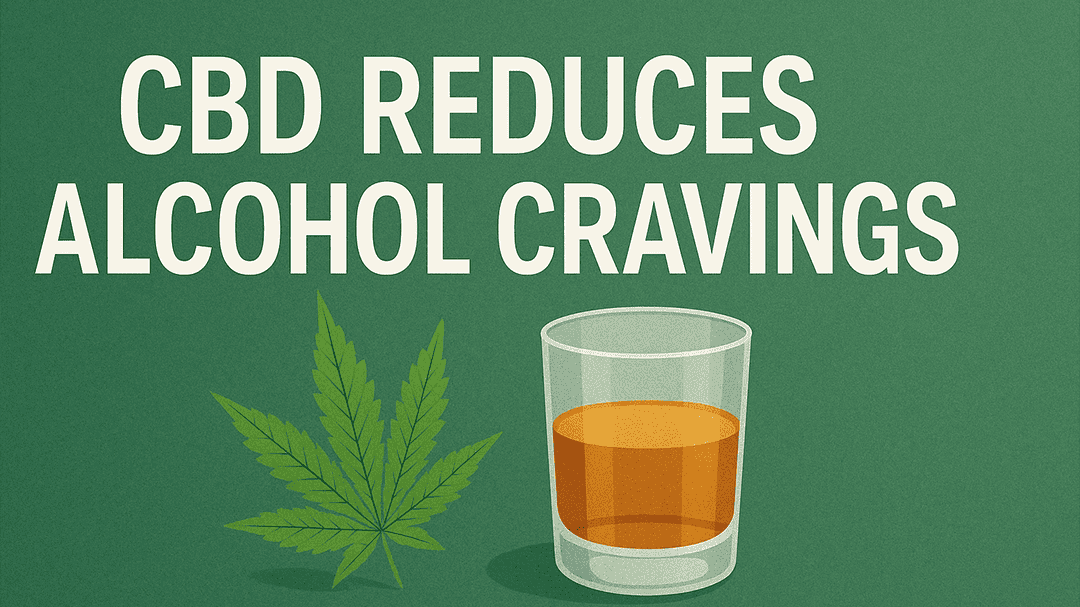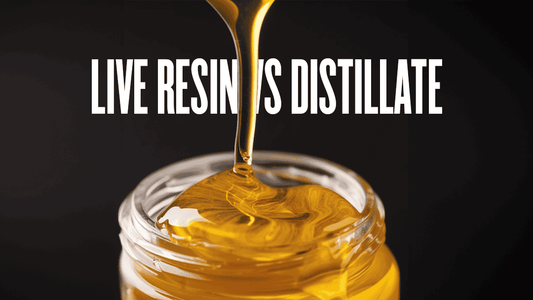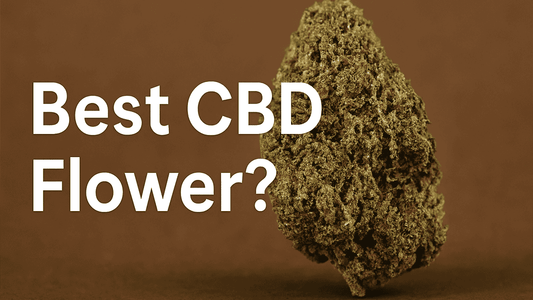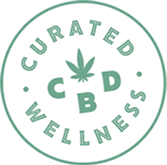CBD Reduces Alcohol Cravings, Study Finds
Cannabidiol (CBD), the non-intoxicating compound found in cannabis, continues to surprise researchers and consumers alike with its therapeutic potential. The latest breakthrough? A new study suggests that CBD can significantly reduce alcohol cravings in people struggling with alcohol use disorder (AUD).
Published in the prestigious journal Molecular Psychiatry, the research provides some of the most compelling clinical evidence yet supporting the use of CBD as a treatment aid for those with AUD.
The Study: CBD and Alcohol Use Disorder
Conducted by a research team at the University of Heidelberg's Department of Addictive Behavior and Addiction Medicine, the randomised, double-blind, placebo-controlled trial involved 28 participants diagnosed with alcohol use disorder.
Here's how it worked:
- Participants were required to abstain from drinking alcohol for at least 24 hours before participating.
- They were then given either 800mg of CBD or a placebo.
- Three hours later, they were exposed to stress- and alcohol-related cues in a simulated bar environment.
- Their brain activity was monitored using MRI scans, and their cravings were assessed using established psychological tests.
The Results?
Participants who received CBD reported:
- Significantly reduced alcohol cravings, especially in response to alcohol-related cues.
- Lower activity in the nucleus accumbens (NAc) — a region in the brain associated with craving and reward response.
"CBD's effects on craving appear clinically meaningful," the researchers wrote, emphasising the potential of CBD to address a core symptom of AUD.
Why Does This Matter?
Craving is not just a fleeting urge; in AUD, it's a central driver of relapse and a major barrier to recovery. The ability of CBD to reduce cravings, especially those triggered by environmental cues, opens the door to new, non-addictive treatment options for those in recovery.
Additional Benefits of CBD in AUD Treatment:
- Non-intoxicating (unlike THC)
- No known abuse potential
- Safe even at high doses (800mg and above)
This is especially important given that existing medications for AUD have mixed efficacy and often come with side effects.
How Can Someone Take 800mg of CBD?

Let's be clear: 800mg is a high dose by everyday CBD standards. Most products on the market provide 10mg to 50mg per serving. So, how would someone actually take this much CBD?
A practical method would be to use CBD isolate, which is pure, concentrated cannabidiol.
The most efficient and cost-effective way to administer such a large dose would be using 99% CBD Isolate.
It can be mixed with food and drinks or taken sublingually for fast absorption.
How Does CBD Work in the Brain?
Although the full picture is still emerging, researchers believe CBD interacts with several brain systems involved in craving and addiction:
- Endocannabinoid system (ECS): Helps regulate mood, reward, and stress response.
- Serotonin receptors (5-HT1A): CBD's affinity for these receptors may reduce anxiety and stress-induced craving.
- Nucleus accumbens activity: CBD dampens hyperactivity in this brain region, reducing the reward value of alcohol cues.
Cue-Specific Action
One of the most interesting findings of the study was that CBD didn't blunt all types of brain activity — only responses to alcohol-related stimuli. This suggests that CBD doesn't suppress motivation or general pleasure-seeking, only the "hyperreactivity" to alcohol cues that can lead to relapse.
A Rapid Onset of Action
Another compelling outcome: The effects of CBD were observed just three hours after administration, coinciding with peak blood plasma levels.
This is important because many psychiatric drugs can take days or even weeks to begin working. CBD's fast onset could be especially useful in emergencies or acute cravings.
CBD Beyond Alcohol: What Other Substances?
This isn't the first time CBD has been shown to help reduce cravings. Past studies have explored its effect on other substance use disorders:
1. Opioids
- A landmark study found that CBD reduced heroin cravings and anxiety in opioid-dependent individuals.
- Another study reported that cannabis helped patients manage opioid withdrawal symptoms.
2. Tobacco
- Smokers given CBD inhalers reduced cigarette consumption by 40%, according to one early study.
3. Cannabis Use Disorder
- Studies funded by the National Institute on Drug Abuse are exploring whether CBD can help reduce problematic THC use.
These effects are thought to come not from any intoxicating high but rather from CBD's action on brain mechanisms linked to craving, compulsion, and emotional regulation.
Why This Matters in the Fight Against Addiction
The ongoing opioid epidemic and widespread issues with alcohol and prescription drug misuse demand better, non-addictive alternatives.
CBD's strong safety profile and minimal side effects may offer a new frontier in harm reduction and recovery support.
And there's growing evidence for this:
- A 2023 study from Ohio found most medical marijuana patients reported reduced use of opioids and other prescription drugs.
- Another 2022 study showed that legal CBD access reduced opioid prescription rates by 6.6% to 8.1%.
- Research published in BMJ Open compared cannabis and opioids for chronic pain, finding similar efficacy with fewer discontinuations for cannabis.
The Big Picture
The new study out of Heidelberg is just one of many reshaping how we understand cannabis and its components. In particular, it adds weight to the growing belief that CBD is more than a wellness trend — it's a legitimate therapeutic compound worthy of serious clinical attention.
Key Takeaways:
- CBD reduces alcohol cravings and brain reactivity to alcohol cues in people with AUD.
- The effects were seen just 3 hours after a single 800mg dose.
- CBD showed specificity, affecting alcohol-related cravings without dulling general brain function.
- CBD could be a non-addictive, fast-acting treatment option for individuals in recovery from alcohol dependence.
- CBD isolate provides a practical and affordable method of administering high doses.
Frequently Asked Questions (FAQ)
Can I mix CBD with alcohol?
While mixing CBD and alcohol is not typically dangerous, it may amplify sedation and reduce coordination. However, the goal of using CBD for people with AUD is generally to replace or minimise alcohol consumption, not combine the two.
Is CBD addictive?
No. CBD has no known abuse potential, according to the World Health Organization. It does not cause a high, nor does it lead to physical dependence.
How much CBD should I take for cravings?
The clinical trial used an 800mg dose, much higher than typical retail doses. Always consult a healthcare provider before taking high-dose CBD.
Can CBD help with other addictions?
Yes. Research shows CBD may also reduce cravings for opioids, tobacco, and even cannabis in individuals with cannabis use disorder.
What's the safest way to take high-dose CBD?
Using pure CBD isolate, such as 99% CBD Isolate, is one of the safest and most accurate ways to consume large doses. It allows for precise measurement and minimal additives.
Does CBD show up on a drug test?
Pure CBD should not cause a positive drug test. However, full-spectrum CBD products may contain trace amounts of THC that could be detected.
Final Thoughts
As stigma fades and science catches up, compounds like CBD are being evaluated not for their trendiness but for their true medicinal potential. For those struggling with alcohol dependence, the possibility of reducing cravings safely and naturally could be life-changing.
This study is a significant step forward in that direction.
And for those looking to experiment with high-dose CBD under medical supervision or explore its calming effects for themselves, products like 99% CBD Isolate could provide a meaningful starting point.

 4.6 Rating. Excellent.
4.6 Rating. Excellent.




